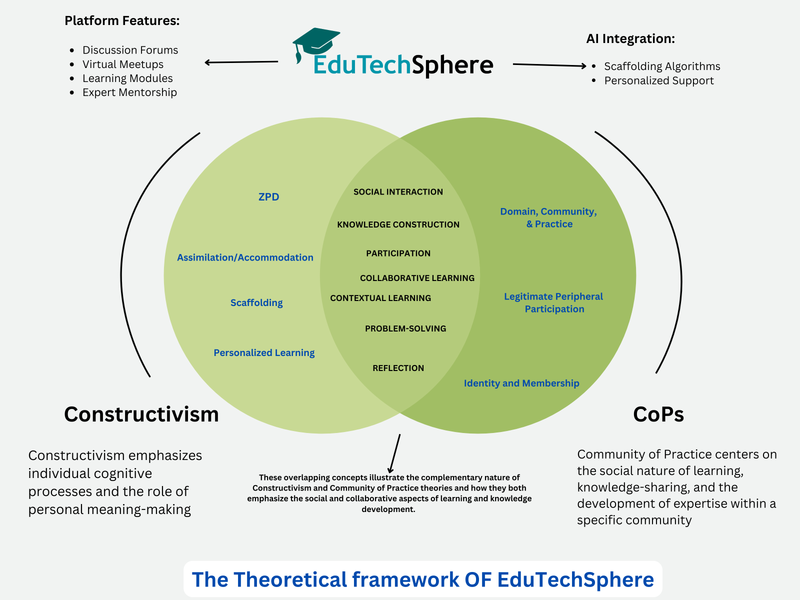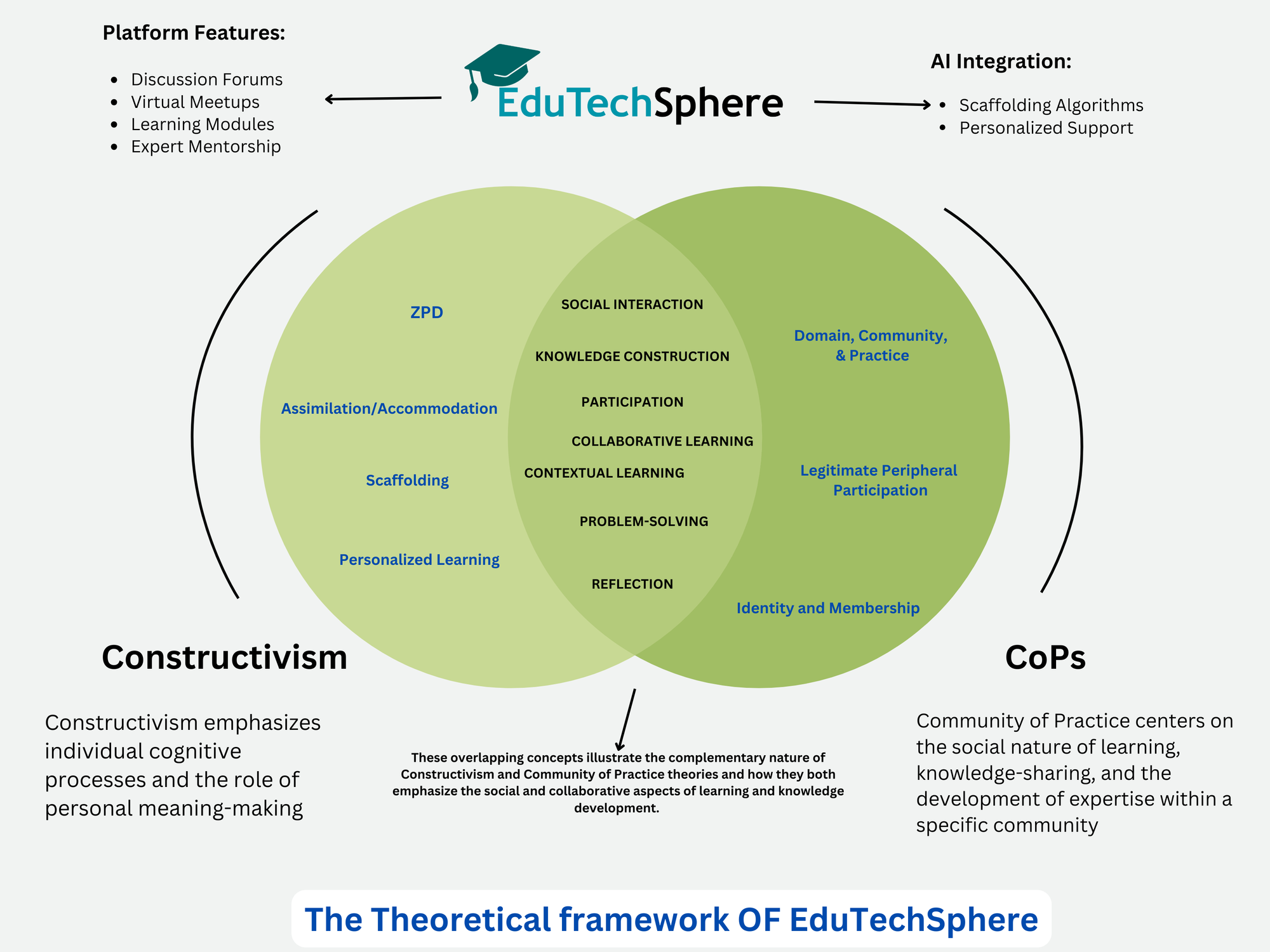
The Theoretical Framework of EduTechSphere

The theoretical framework for the EduTechSphere project is grounded in two key educational theories: Social Constructivism and Community of Practice (CoP). These theories provide the foundation for understanding the dynamics of learning, collaboration, and knowledge creation within the platform. These Theories collaborate to create an environment where learners collaboratively construct knowledge, supported by AI-driven tools that align with the principles of scaffolding and shared engagement. This Theoretical integration empowers learners not only to acquire research writing skills but also to actively contribute to the collective knowledge within the academic community.
1. Social Constructivism:
Social Learning: Learning is a social process that occurs within a community where members share common goals and actively engage in joint activities. The platform creates a virtual academic community where doctoral students collaborate and engage in shared research endeavors.
They actively construct knowledge through interactions with their environment, peers, and resources.
Learning modules are designed to align with the ZPD, ensuring content is challenging yet accessible.
AI algorithms provide personalized support, acting as a form of digital scaffolding to enhance individual learning journeys.
2. Community of Practice (CoP):
Mutual Engagement: Students interact regularly, contributing and receiving knowledge in the context of their shared domainV(LDT). In The platform, Discussion forums, virtual meetups, and expert mentorship tools facilitate mutual engagement and knowledge exchange.
Identity and membership: The students in the community fosters a sense of identity and belonging among its members .They are encouraged through active participation and collaboration within the community.
Watch This Video for more explanation
